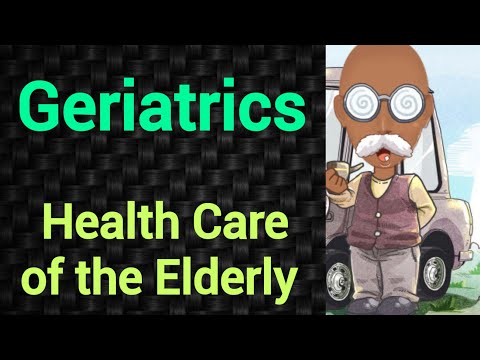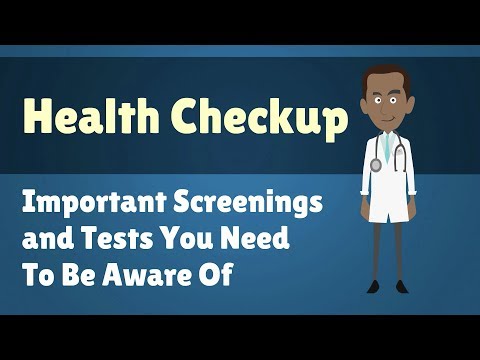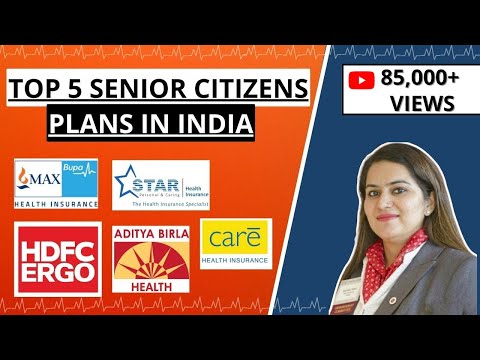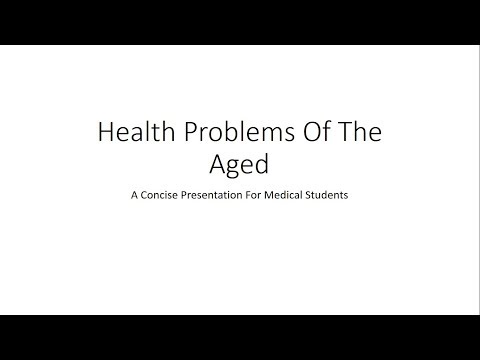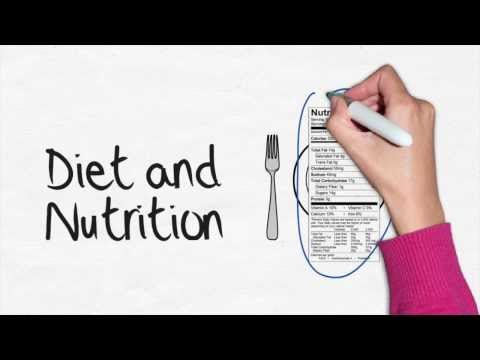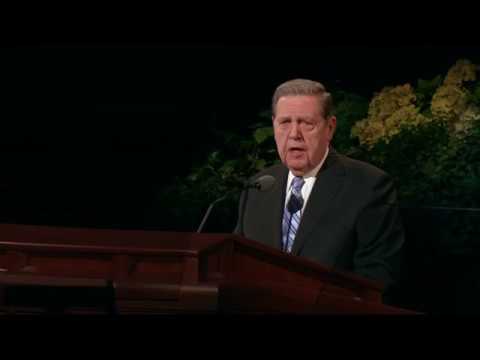Health Maintenance for the Elderly: What You Need to Know
Contents
- Introduction: Why health maintenance is important for the elderly.
- The importance of regular check-ups and screenings.
- Vaccinations and other preventive measures.
- Managing chronic conditions.
- Healthy eating for the elderly.
- Exercise and staying active.
- Managing stress and anxiety.
- Getting enough sleep.
- Dealing with memory problems.
- Planning for the future.
As we age, our health needs change. It’s important to be proactive about our health and understand how to best take care of ourselves as we age. In this blog post, we’ll share some tips on how to maintain our health as we get older.
Checkout this video:
Introduction: Why health maintenance is important for the elderly.
As people age, they are more susceptible to health problems This is due to the aging process itself as well as lifestyle choices. To stay healthy, it is important to be proactive and take steps to prevent illness. This is called health maintenance.
There are many things that can be done to maintain health in later life. Some of these are:
– eating a healthy diet
– exercising regularly
– getting enough sleep
– managing stress
– maintaining a social life
– getting regular checkups and screenings
Elderly people should also be aware of their risks for certain diseases and conditions, such as heart disease, stroke, cancer, and diabetes. They should take steps to reduce their risks by, for example, quitting smoking and controlling their blood pressure.
Health maintenance is important for everyone, but it is especially crucial for the elderly. By taking steps to stay healthy, they can enjoy a better quality of life and avoid many potential health problems
The importance of regular check-ups and screenings.
As we age, it becomes even more important to take care of our bodies and minds. With age comes an increased risk for developing chronic conditions such as heart disease, stroke, cancer, and diabetes. Additionally, the elderly are more likely to experience a decline in cognitive function and mobility. Luckily, there are things that can be done to prevent or delay the onset of these conditions.
One of the most important things you can do for your health is to see your doctor for regular check-ups and screenings. These appointments give your doctor a chance to catch any problems early, when they are most treatable. They also give you an opportunity to discuss any concerns you may have about your health.
During a check-up, your doctor will likely take your vital signs (blood pressure, heart rate, temperature, etc.), weight, and BMI. They will also ask about your medical history and medications you are taking. Be sure to tell your doctor about any changes in your health since your last visit, such as new medication side effects or changes in diet or activity level.
Your doctor may also recommend certain screenings at your visit. These tests can help detect problems early, when they are most treatable. For example, screening for colon cancer can help prevent the disease from progressing to a more serious stage. Other common screenings include:
Mammogram: A mammogram is an X-ray of the breast that can detect breast cancer in its early stages. The American Cancer Society recommends that women age 45 and older have a mammogram every year.
Pap Smear: A Pap smear is a test that can detect changes in the cells of the cervix that could turn into cancer. The American College of Obstetricians and Gynecologists recommends that women aged 21-65 get a Pap smear every 3 years).
Colonoscopy: A colonoscopy is a test that allows the doctor to look at the lining of the colon for abnormal growths or changes. It is recommended that people aged 50 and over have a colonoscopy every 10 years).
Prostate Exam: A prostate exam is a physical exam of the prostate gland that can help detect prostate cancer in its early stages. The American Cancer Society recommends that men aged 50 and over have a prostate exam every year).
Vaccinations and other preventive measures.
It’s never too late to start taking care of your health. In fact, preventive measures are especially important as we age. They can help us stay strong and independent, and prevent health problems before they start.
One of the best ways to stay healthy is to get vaccinated. Vaccines help our bodies build immunity against diseases, and are safe and effective for people of all ages. The Centers for Disease Control and Prevention (CDC) recommends that everyone over the age of six months get a flu vaccine every year, as well as other vaccines based on age, health condition, occupation, lifestyle, and travel plans.
Other preventive measures include:
-Eating a healthy diet
-Exercising regularly
-Getting regular checkups and screenings
-Staying up to date on vaccinations
-Not smoking
-Limiting alcohol intake
-Practicing safe sex
Managing chronic conditions.
As we age, our risk for chronic health conditions such as heart disease, stroke, cancer, and diabetes increases. Fortunately, there are steps we can take to reduce our risk and delay the onset of these conditions.
One way to reduce your risk of chronic disease is to maintain a healthy lifestyle. This includes eating a healthy diet, being physically active, and maintaining a healthy weight. If you smoke, quitting is also an important step to reducing your risk of chronic disease.
If you have already been diagnosed with a chronic condition, there are still things you can do to manage your condition and improve your health.
For example, if you have heart disease, you can manage it by taking medication as prescribed, maintaining a healthy lifestyle, and attending regular check-ups with your healthcare provider.
If you have diabetes, you can manage it by taking medication as prescribed, checking your blood sugar regularly, eating a healthy diet, being physically active, and attending regular check-ups with your healthcare provider.
No matter what chronic condition you may be facing, it is important to stay informed about your condition and what you can do to live a healthier life.
Healthy eating for the elderly.
There are a few things to keep in mind when it comes to healthy eating for the elderly. First, it is important to make sure that meals are high in nutrients and fiber. With age, the body becomes less efficient at absorbing nutrients, so it is important to make sure that the foods you eat are packed with nutrients. Second, it is important to stay hydrated by drinking plenty of fluids throughout the day. And finally, it is important to limit your intake of saturated fats, sodium, and sugar. By following these tips, you can help ensure that your elderly loved one stays healthy and happy.
Exercise and staying active.
Exercise and staying active are important for people of all ages, but they are especially important for the elderly. Regular exercise can help to prevent or manage many common health problems, including heart disease, stroke, arthritis, obesity, diabetes, and high blood pressure. It can also help improve mental health and mood, reduce stress and anxiety, and promote better sleep.
There are many ways to get exercise and stay active, and it doesn’t have to be difficult or time-consuming. Just 30 minutes of moderate exercise (such as walking) most days of the week can make a big difference. Other easy ways to get moving include gardening, dancing, taking the stairs instead of the elevator, and doing household chores.
If you’re not used to being active, start slowly and gradually increase your activity level over time. If you have any health concerns or limitations (such as from arthritis), talk to your doctor before starting an exercise program. He or she can provide advice on which activities are best for you and how to stay safe while being active.
Managing stress and anxiety.
Unfortunately, stress and anxiety are common among the elderly. There are a number of things that can contribute to this, including health concerns, loneliness, financial worries, and more. It’s important to manage stress and anxiety in order to maintain good health. Here are a few tips:
-Talk to your doctor about your concerns. They can help you develop a plan to manage stress and anxiety.
-Exercise regularly. This can help reduce stress levels and improve your overall health.
-Stay social. Connecting with others can help reduce feelings of loneliness and isolation.
-Create a budget. Managing finances can be a big source of stress for many people. Having a budget can help you stay on track and avoid financial worry.
If you’re struggling with stress or anxiety, don’t hesitate to reach out for help. There are many resources available to you, including support groups, counseling, and more.
Getting enough sleep.
As you get older, you may find that you need less sleep than you did when you were younger. However, it is still important to make sure that you get enough rest. A good night’s sleep can help you to stay sharp and alert during the day. It can also help to reduce stress and anxiety.
There are a few things that you can do to make sure that you get enough sleep:
– Establish a regular sleep schedule and stick to it as much as possible.
– Create a calming bedtime routine and stick to it. This may include reading or taking a bath.
– Make sure that your bedroom is dark, quiet, and cool.
– Avoid caffeine and alcohol before bed.
Dealing with memory problems.
As we age, it’s normal for our memory to decline. But for some older adults, memory problems can be a sign of dementia. Dementia is a general term for a decline in mental ability due to disease or injury. Alzheimer’s disease is the most common type of dementia.
If you’re worried about your memory or that of a loved one, talk to your doctor. He or she can evaluate whether the problem is normal aging or something more serious. There are treatments available for dementia, so it’s important to get a diagnosis as soon as possible.
There are also things you can do to keep your mind healthy as you age. These include:
-Exercising regularly
-Eating a healthy diet
-Staying socially active
-Challenging your mind with activities like puzzles or learning new skills
Planning for the future.
As we age, it becomes more important than ever to take care of our health. Unfortunately, many of us don’t think about our health until it starts to decline. By then, it can be difficult — and expensive — to make changes that will improve our health.
That’s why it’s important to start thinking about health maintenance for the elderly now, even if you’re not yet elderly yourself. Planning ahead can help you make sure you have the information and resources you need to stay healthy as you age.
Here are a few things to keep in mind as you start planning for your future health:
-It’s never too early to start thinking about your health. The sooner you start making healthy choices, the better off you’ll be in the long run.
-Your health needs will change as you age. What works for you now might not work for you later in life. Be prepared to make changes to your routine as your needs change.
-There is no one-size-fits-all approach tohealth maintenance for the elderly. What works for one person might not work for another. Talk to your doctor about what steps you should be taking to maintain your health.
-Don’t wait until something goes wrong to take action. Many chronic diseases can be prevented or controlled with lifestyle changes and regular checkups. The sooner you start making changes, the better off you’ll be in the long run.

